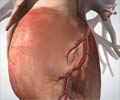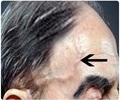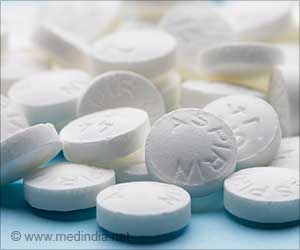Respiratory Modulation Response (RMR), a novel, non-invasive test, is effective in detecting quickly and accurately significant coronary artery disease (sCAD), new data shows.
Respiratory Modulation Response (RMR), a novel, non-invasive test, is effective in detecting quickly and accurately significant coronary artery disease (sCAD), new data shows.
Patients in the study with sCAD had a lower RMR compared to patients without, regardless of their risk factors or clinical history of angina, previous myocardial infarction (MI), or angioplasty. These data, published in the current issue of Euro Intervention Journal, demonstrate that RMR was lower in patients with significant CAD compared to those with non-significant CAD (P<0.0011), regardless of their risk factors or clinical history of angina, previous MI, or angioplasty Researchers at Rabin Medical Center used an innovative respiratory stress test developed by SPIROCORTM Ltd. The test uses a Pulse Oximeter (PPG) to measure a patient's blood flow in the finger in response to his or her paced breathing for 70 seconds. PPG data captured in the study are recorded immediately and analyzed using a proprietary algorithm that determines the Respiratory Modulation Response in a percent value. The findings of this study were further validated in research recently published in Cardiovascular Revascularization Medicine. "Identifying significant coronary artery disease through non-invasive testing is very challenging," said Dr. Ran Kornowski, Director, Interventional Cardiology, Rabin Medical Center, Tel Aviv. "This study shows that the SPIROCOR test is a simple and non-invasive test that independently predicts significant coronary artery disease in patients referred for a coronary artery evaluation."The test is not yet cleared for use in the US. The safety and efficacy of the test compared to stress electrocardiography in detecting S-CAD is the subject of the pivotal 1,000-patient SCORE (Spirocor Coronary Outcome by Respiratory stress Examination) study that is currently ongoing.
Study Methodology and Findings In this study, the RMR test was performed on a total of 97 consecutive patients referred for coronary angiography to exclude sCAD. Coronary angiography was performed on all subjects and analyzed by cardiologists who were blinded to the RMR results.
The mean patient age was 62, and the majority was men (77%). There were no significant differences between patients with sCAD and those with non-sCAD with respect to risk factors. Patients with sCAD had more incidences of recent (MI), while patients without sCAD had not had recent MI. No side effects were reported during the study.
Additional multicenter, community-based studies under varying clinical settings and patient populations are warranted to rigorously assess the value of this test for the detection of S-CAD.
The proprietary respiratory stress test system developed by SPIROCOR features a non-invasive PPG finger probe connected to a computer with analyzing software residing on a central server, accessed via the internet. The patient performs a controlled breathing exercise which consists of inhaling and exhaling seven times. The PPG signal is automatically captured and the data transmitted for analysis. The RMR test has been renamed as the RSR (Respiratory Stress Response). The RSR report is automatically generated and made available on a password secured Web site for the cardiologist to review and make a decision regarding the next diagnostic and therapeutic step.
Advertisement
SPIROCOR has advanced significant coronary artery disease (S-CAD) diagnosis by developing an office-based, effective, low-cost, low-risk, non-invasive, functional diagnostic test assessing cardiovascular respiratory response. The web-based platform, via its secure electronic access, enables cardiologists throughout the world to evaluate and fast track the diagnosis and treatment of S-CAD.
Source-Medindia
GPL










